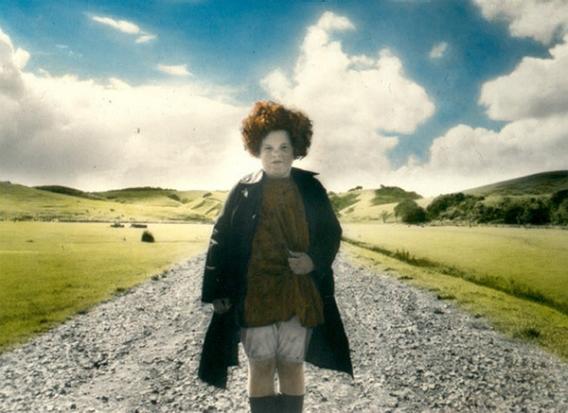Jane Campion’s new seven-part TV series Top of the Lake, which premieres tonight on the Sundance Channel, is simultaneously enthralling and hard to watch. As Troy Patterson put it elsewhere in Slate, “when Top of the Lake succeeds, it’s as a triumph of asphyxiating tone.”
Much of the coverage of Top of the Lake has focused on a movie director of Campion’s stature—in 1993, The Piano earned her an Academy Award nomination for best director and won the Oscar for best original screenplay—taking her talents to television. The entire season was shown in one 9 a.m.-to-5 p.m. session at the Sundance Festival this January—it was the first TV series to premiere in Park City—and again at the Berlin Film Festival.
But Top of the Lake isn’t Campion’s first work for television. Her 1990 film An Angel at My Table, an adaptation of three autobiographical volumes by fellow Kiwi Janet Frame, which won the Silver Lion at the Venice Film Festival and which Roger Ebert described as “quietly but completely absorbing,” also originated as a TV mini-series.
The full series is not available online, but the two-hour-38-minute movie version is on Hulu Plus. I rewatched it this weekend, right after screening the first three episodes of Top of the Lake, and I was struck by how much the earlier project appeared to influence the new one.
At first glimpse, the two projects—a biopic drawn from the writings of a beloved author and a detective thriller—seem quite different. But Campion dispenses with so many standard genre elements that An Angel at My Table and Top of the Lake feel like companion pieces. The biopic does focus on its subject’s life story, but solving the mystery that is theoretically the purpose of the series seems to be the least of Campion’s interests in Top of the Lake.
As with so many of Campion’s films, each series is carried by an extraordinary performance by a young actress—Kerry Fox in Angel and Mad Men’s Elisabeth Moss in Lake. And each focuses on a lonely young woman who is intensely connected to a physical landscape—the lush greenery and deep blue water of rural New Zealand—but almost entirely isolated from human society. Janet Frame was cripplingly shy and preferred to live in the world inside her head; Top of the Lake’s police officer Robin Griffin works in a male-dominated profession and finds herself in an aggressively sexist part of the world. Both struggle to come to terms with damage inflicted on them when they were young—more than 200 electroshock treatments for Frame, whose shyness was misdiagnosed as schizophrenia, and a dreadful crime that transformed Griffin’s life. It also seems that Campion, who wrote Top of the Lake with Gerard Lee, internalized some of the details of Frame’s life when she set out to create her newest fictional world. The new series begins with a young woman walking into a lake in an apparent suicide attempt, and it is the scene of at least one other death. Frame lost two of her three sisters in separate drowning accidents.
But the biggest stylistic similarity is Campion’s refusal to shy away from life’s most excruciating moments: awkward conversations, horrifying confrontations, and interpersonal situations that test an individual’s capacity to carry on living. Campion’s directorial instinct can border on cruelty. Angel at My Table is full of scenes that made me fight the urge to hit fast-forward, not because I was bored—far from it—but because I wasn’t sure I could stand to see sweet, kind Janet so cruelly mistreated by the world.
Campion, unflinching, keeps the camera rolling while Janet Frame attempts to talk with a man who is too arrogant to socialize with someone as strange-looking and awkward as her, or when Robin Griffin struggles, with little success, to get the white men of her hometown to treat women and people of color with dignity and respect. It’s almost as though a standard movie length doesn’t provide enough time and space to luxuriate in life’s difficulties. At several hours each, Top of the Lake—and An Angel at My Table allow viewers more than enough opportunities to drown in discomfort.
